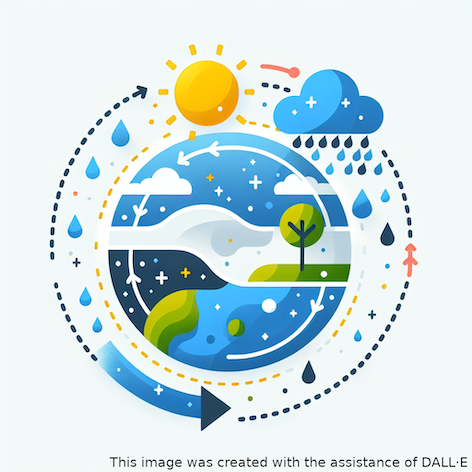PhD project offered by the IMPRS-gBGC in July 2024
Adapt Generative Diffusion Models to Assess Vegetation’s Role in Extreme Weather Formation |
|
Christian Reimers,
Alexander Winkler,
Tobias Finn,
Shijie Jiang,
Markus Reichstein,
Joachim Denzler
|
Project descriptionWeather is shaped by the interplay of energy and water cycles on our rotating planet fueled by solar radiation. Plants influence the weather in large areas by regulating the surface energy balance and by governing the water supply to the atmosphere. Frequently, this dynamical system tips into extreme states, culminating in extreme weather formation, such as heat waves, droughts or extreme precipitation.This project tackles the question of how vegetation influences weather formation locally and regionally, adapting state-of-the-art deep neural image generation techniques, namely Generative Diffusion, to Earth system modeling. Generative Diffusion has been shown to excel at capturing complex multivariate distributions. Here, Generative Diffusion will be adapted to identify vegetation’s crucial role in extreme weather formation. This approach will provide vital insights of societal relevance into the potential amplification of extreme weather conditions, as the Earth transitions into a high CO2 state, causing vegetation patterns and climate conditions to change. The project is envisaged in a three-step process: Firstly, the doctoral candidate studies the governing land-atmosphere processes and trains in Generative Diffusion modeling, while we will jointly write a review article on its capabilities and applications in Earth system sciences. Secondly, they will build a Generative Diffusion model using outputs from high-resolution Earth system models to recover the vegetation control in weather formation how it emerges from the modeled data. Finally, they will adapt the approach to observational data from high-resolution remote sensing data and reanalysis in land-atmosphere coupling hotspot regions, such as the Sahel or the Amazon basin. Key strengths of Generative Diffusion, such as modeling internal variability and feedbacks, and counterfactual analyses, allow us to analyze how vegetation modulates extreme weather formation from observations. We are looking for a highly motivated candidate with experience in Earth system science and machine learning,i.e., master’s degree in Physics, Meteorology, Environmental Sciences, Geoinformatics, Computer Science, Mathematics, or similar. Experience or knowledge in advanced deep learning techniques, e.g., deep generative modeling, is advantageous but not mandatory. The Max Planck Society (MPS) strives for gender equality and diversity. The MPS aims to increase the proportion of women in areas where they are underrepresented. Women are therefore explicitly encouraged to apply. We welcome applications from all fields. The Max Planck Society has set itself the goal of employing more severely disabled people. Applications from severely disabled persons are expressly encouraged.  |